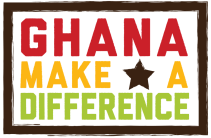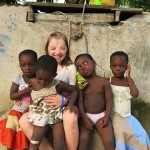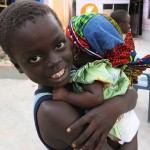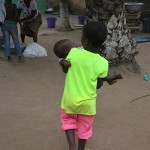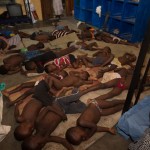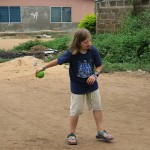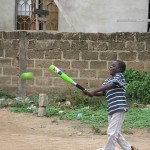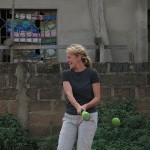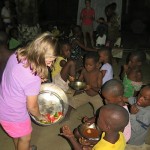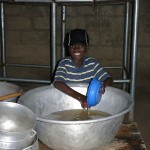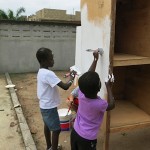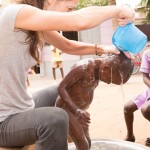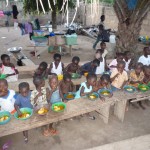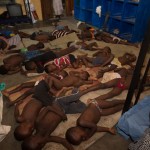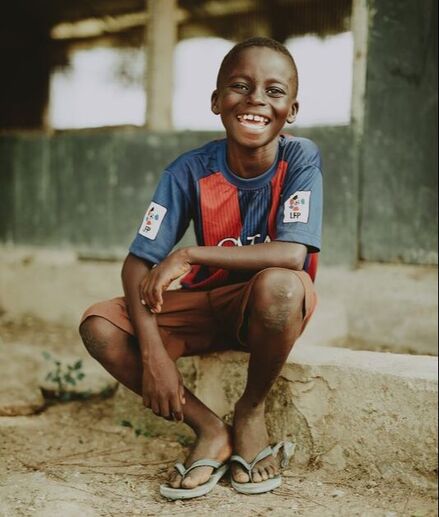|
Land in Ghana is controlled by tribal chiefs. While there are some exceptions, for the most part, you don’t buy land. Instead, you enter into long-term leases with local chiefs to use land and property; the duration of a long-term lease is typically 99 years.
We worked hard during our first 10 weeks here in Ghana to launch the building of a new home for parentless children. Step one in the process…find land. We looked at different parcels near Kasoa ranging in size from 2 to 5 acres and ranging in cost from $20,000 to $40,000. We got especially excited about a particular piece of land about 6 miles west of Kasoa (where we are staying). The land was beautiful and it was near a junior high school, but it was off the main road quite a ways and it did not have any electricity. Nevertheless we tried to make it work. I met with the electric company to see what it would take to pull electricity to the area. I met with the prince (the son of the village chief) to discuss payment and our building plans. We almost had ourselves talked into buying the land when several people helped us realize that some chiefs will donate land to use for a children’s home. So we hit the brakes and began networking. The official language of Ghana is English, but the truth is, English is a second language here. There are 9 native languages “sponsored” by the government, with the main one being Akan. Akan has two major dialects: Twi and Fante. These two dialects are so widely spoken that they are often given the status of separate languages.
Francis and Francisca speak Fante; they also speak English. If you gave birth to a 9 year-old child that right out of the womb could speak some English, spoken phrases like “You’re a liar!” or “Give me bread!” or “Take my shoes!” or “No!” may all bring feelings of proud delight, like “Goo goo” and “Ga ga”. I remind myself of this daily and try to patiently correct and teach proper English phrases and good manners. It is fun watching our children help care for parentless children here in Ghana. Please join us in the effort. Visit www.ghanamakeadifference.org to learn how you can help. 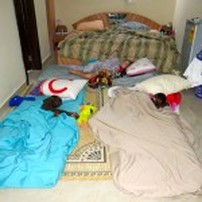 Some of the happiest times in my life have been during periods of materialistic simplicity. Absolutely. For a number of years after Halle was born in 2000, our family would spend 3-6 months at a time in Chicago for her medical care. During these times our 6-member family resided on the 21st floor in a one-bedroom, one-bathroom apartment that served as our home, our school, and my office. The kids had a bucket, not a room or a closet. Every morning we rolled up our beds, and every night we laid them down again. During the day, the one permanent bed in the bedroom doubled as a table/desk upon which I would spread out voluminous work papers to review and analyze. With the simplicity we were able to spend much more time on things that really mattered, and they were happy times. As the photo above indicates, our arrangements here in Ghana are not very different from what they were in Chicago 13 years ago. Instead of buckets, Halle, Ryan and Francisca have cubbies and a backpack. Once again, the simplicity allows us to spend much more time on things that really matter, and they are happy times. I recommend it, I really do.
This little field of dirt is a blessing. Life can get a bit confined in a walled hotel. So once in a while we make our way to this field down the road. Ryan enjoys baseball. He’s never played before and he doesn’t know the rules, but we are having fun getting up to speed.
This is the same small field that is home to soccer and other activities of the 45 orphan children. It is way too small for 20 kids let alone 45, and it isn’t public ground so we don’t know how long the neighbor will continue to smile at our presence there. Help us raise the money to build a home where parentless children have some room to play. Donate now at www.ghanamakeadifference.org. If your 18 year-old child knew how to work as hard as our 9 year-old Ryan (fka Francis) and Francisca and our 13 year-old Halle, you would be proud, really. It is impressive. Living in a hotel, we don’t have an abundance of work opportunities, so maybe the evidence is insufficient to reach such a strong conclusion, but what work we do have gets done well: preparing our meals, washing our dishes, sweeping the kitchen, sweeping our bedrooms, cleaning up bedding, hanging laundry, carrying groceries. And thanks to the WACF orphanage, painting shelves.
Come work with us. www.ghanamakeadifference.org 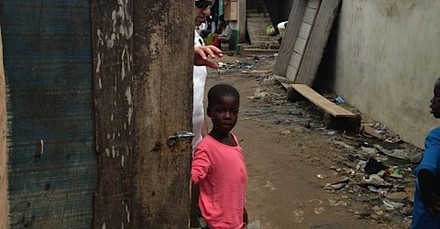 If your newborn child could tell you that they had to go “pee” or to the “toilet” you may be very excited. I remind myself of this every 30 minutes or so when we are out in public, where there are virtually no public restrooms, and when every 30 minutes or so Francisca says “I want to pee”. We try to strike a balance between (#1) training these kids for American life and (#2) accepting the fact that Ghana is not America. When pushing training effort #1, we hunt down a restroom, no matter how crude of a facility it may be and no matter how near the child is to wetting his or her pants. In accepting fact #2, we tell the kids to urinate right here behind this bush, in this ditch, or at the roadside. Likewise, if your newborn child was potty trained, and could use the toilet by themselves, you would be pleased. And so am I, and I have to smile when there is used toilet paper in, or almost in, the trashcan in the bathroom. I had to coerce and use the scientific method to convince Francis and Francisca that the toilets in our hotel could actually flush the used toilet paper away with the waste. At one particular orphanage here in Ghana, the children share two toilets with no lids, no water, and no lights. The small kids go in little buckets or on the ground in the overcrowded yard. We can make a difference. Help us train, educate and provide adequate facilities for parentless children in Ghana. Donate your time and/or your money by visiting www.ghanamakeadifference.org. 100% of your donation will get to the children. How are you GHANA MAKE A DIFFERENCE? Help us build a new home for parentless children in Ghana. Visit www.ghanamakeadifference.org to make a donation now.
I should answer the obvious question: Why is Ghana Make A Difference helping parentless children in Ghana, and why do these children need a new home? When Stacey and I first visited Ghana in 2012, we saw orphanage homes where there was:
|
Archives
August 2020
|
|
GET IN TOUCH
🌐P.O. Box 55 Star, ID 83669
📧[email protected] |
MISSION
We shelter children who have been rescued from forced labor trafficking, abandonment, or who have special needs until we are able to reintegrate them with their biological family or to place them in a new family.
We preserve families and provide a path to self reliance through shelter, life skills, education and medical care. |
QUICK LINKS
|
Ghana Make A Difference is a 501(c)(3) organization; your donation is tax deductible. 100% giving. Our tax I.D. number is 45-5615778.
